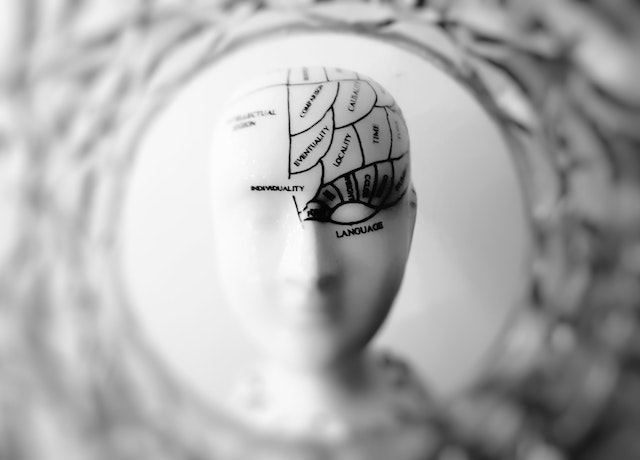Everyone has heard of “abundance mindset”, but what does it REALLY mean to have a mindset of abundance?
Are you tired of living a life where you feel like you’re constantly lacking?
Do you wish you could experience a more abundant life – filled with joy and also more money than you need?
Are you unsatisfied or do you constantly compare your life to others?
Do you wonder when it will be “your time”?
The key to unlocking the power of abundance lies in adopting a mindset of abundance: holistically.
In this article, we will explore what an abundance mindset is, the limitations of mindset alone, the holistic approach to abundance mindset, and practical abundance mindset practices you can incorporate into your daily life.
Table of Contents
ToggleUnderstanding a Mindset of Abundance
The abundance mindset is a way of thinking that focuses on the idea that there is always enough to go around.
It’s a belief that there is an abundance of love, wealth, and opportunity in the world. AND: that we all have access to it. People with an abundance mindset are not afraid to take risks. They more easily pursue their dreams because they TRUST that there will be enough for everyone.
But how do you develop an abundance mindset?
It starts with changing your thoughts. But it doesn’t end there. Real lasting change with a mindset of abundance involves your nervous system and embodiment as well. (More on that in a sec.)
These shifts change the way you approach life and open up new possibilities.
What is scarcity mindset or scarcity mentality?
Scarcity mindset is a belief system that is focused on the perception of lack and limitation. Read more about abundance versus scarcity in this post.
People with a scarcity mindset believe that there is never enough of anything.
Whether it’s money, time, opportunities, or resources. They tend to focus on what they don’t have, what they can’t do, or what they’re lacking, rather than what they do have.
This mindset creates feelings of fear, anxiety, and stress. It prevent people from taking risks or pursuing opportunities that could lead to growth and success. People with a scarcity mindset may also struggle with comparison and envy, as they feel like others have more than they do.
When it comes to money, I’ve identified 5 types of limiting beliefs about abundance. Not ALL of them relate to scarcity mentality.
Take the #WealthWound quiz to see which is your current money mindset bottleneck.
The Limitations of Mindset Alone
While mindset is important, it’s not enough to create a truly abundant life.
You can think positively all day long, but if you don’t take action, nothing will change. It’s essential to combine mindset with action to create the life you desire.
Additionally, mindset alone can sometimes lead to a narrow focus on personal success.
A holistic approach to abundance mindset takes into account the interconnectedness of all things AND the importance of contributing to the greater good.
While mindset can be a powerful tool for personal growth and success, there are some potential problems associated with mindset.
- Oversimplification: Mindset often oversimplifies complex issues. Without an integrative approach, it suggests that personal attitude alone is enough to overcome limiting beliefs. (Some of which are caused by systemic or structural barriers.)
- Blaming the victim: Mindset is sometimes used to blame individuals for their own failures. Ever heard that something you did failed because you lost the faith that? I have! Mindset alone sometimes fails in acknowledging the role that external factors play in results.
- Ignoring privilege: Mindset sometimes ignores the impact of privilege and inequality.
- Focusing too much on positive thinking: While positive thinking can be helpful, it can also lead to a denial of negative emotions or experiences. When it comes to mindset and law of attraction, some people become afraid to feel anything negative.
- Ignoring mental health issues: Mindset can sometimes suggest that mental health issues can be overcome simply by changing one’s attitude or mindset.

The Holistic Approach to Abundance Mentality
A holistic approach to abundance mentality takes into account the whole person, including the mind, body, and spirit. It’s about creating balance and harmony in all areas of life to achieve true abundance.
Here are two key components of a holistic approach to abundance mindset:
- Embodiment
- Nervous System Regulation
Embodiment: Connecting Mind and Body
Embodiment is the practice of connecting the mind and body to create a deeper sense of awareness and presence.
When we’re disconnected from our bodies, we can become stuck in our heads and lose touch with our intuition and inner wisdom.
Embodiment practices, such as yoga, dance, or martial arts, can help us reconnect with our bodies and tap into our innate wisdom.
But you don’t need a class or course to start reconnecting with your body. It can be as simple as seeing how your body feels as you intuitively move to music. Or feeling your bare feet on the ground while walking outside. The point is practicing intentionality with how you physically FEEL in your body.
My personal FAVORITE embodiment practice personally is breathwork.
What does embodiment mean for entrepreneurs?
Embodiment refers to the process of fully inhabiting and expressing oneself through the body. For entrepreneurs, embodiment can be a powerful tool for enhancing creativity, reducing stress, and improving overall well-being.
When entrepreneurs are fully embodied, they are more connected to their physical selves, which can help them access their intuition, creativity, and inner wisdom.
This helps with generating new ideas, making important decisions, and navigating the ups and downs of entrepreneurship more ease-fully.
Embodiment also helps entrepreneurs manage stress and anxiety. (Which are common experiences in the fast-paced world of the internet.) By learning to tune into their bodies and regulate their nervous systems, entrepreneurs reduce the negative impact of stress.
Finally, embodiment can help entrepreneurs cultivate a greater sense of presence and authenticity. This helps with building strong relationships with customers, investors, and team members. When entrepreneurs are fully present and authentic, they are more likely to connect with others on a deep and meaningful level, which can help build trust and foster long-term success.
How does embodiment relate to abundance and a growth mindset?
Embodiment and abundance are closely related because our physical bodies play a crucial role in manifesting abundance in our lives.
Embodiment refers to the practice of being fully present in our bodies, connecting with our senses, and experiencing the world around us in a more profound way. When we’re embodied, we’re more in touch with our intuition and inner wisdom, which can help us make better decisions and attract abundance into our lives.
By being fully present in our bodies, we also cultivate a deeper sense of gratitude and appreciation. Gratitude is critical for focusing on what you want. Focusing on what you want is critical for attracting what you want (rather than focusing on what you don’t have).
This helps attract even more abundance in the future.

Regulating the Nervous System: The Power of Breathwork and Meditation
Breathwork and meditation are powerful tools for regulating the nervous system and reducing stress.
When we’re stressed, our bodies go into fight or flight mode, which can cause physical and emotional symptoms. Breathwork and meditation can help us shift out of this state and into a more relaxed and peaceful state. This can lead to increased clarity, focus, and creativity.
Breathwork and Manifesting
Different types of breathwork and manifesting your goals might seem unrelated at first. But in my experience, they have been very closely related. This is because breathwork helps us into into a state of relaxation and alignment. And relaxation and alignment = feel essential for manifesting.
Breathwork involves the conscious control of our breathing to regulate our nervous system, shift our energy, and release any negative emotions or limiting beliefs that may be blocking us from manifesting what we want.
By using breathwork techniques, we can calm our minds, reduce stress, and increase our focus and clarity, which are all essential for manifesting.
Additionally, breathwork can help us raise our vibration, which is crucial for attracting the things we want into our lives. When we’re in a higher vibrational state, we’re more aligned with our desires, and the universe can more easily bring them to us.
Regulating your nervous system is essential for maintaining your physical, emotional, and mental well-being.
Here are some other ways to regulate your nervous system:
1. Deep breathing
Take slow, deep breaths to activate the parasympathetic nervous system, which helps counteract stress and anxiety.
2. Meditation
Mindfulness involves paying attention to the present moment without judgment. It has been found to be effective in regulating the nervous system by activating the parasympathetic nervous system (PNS), which is responsible for the body’s relaxation response. When we practice mindfulness, we activate the PNS, which slows down the heart rate, lowers blood pressure, and relaxes the muscles. This leads to a reduction in the levels of stress hormones like cortisol and adrenaline, and an increase in feel-good hormones like dopamine and serotonin. Over time, regular mindfulness practice can help regulate the nervous system, making individuals more resilient to stress and better able to manage their emotions.
3. Yoga
Practicing yoga involves physical postures, deep breathing, and meditation, which help to calm the mind and relax the body. Yoga has been shown to lower cortisol levels, a hormone responsible for stress, and increase the production of serotonin, a neurotransmitter that regulates mood and behavior. Yoga also helps to improve the quality of sleep, which is essential for reducing stress and promoting overall well-being. Lastly, yoga provides a sense of inner peace and tranquility, which can help us feel more grounded.
4. Exercise
Regular exercise can help reduce stress and anxiety.
5. Nature
Being in nature can help reduce stress and promote relaxation.
6. Sleep
Good sleep is essential for the regulation of the nervous system. During sleep, the body undergoes a process of restoration and repair, which helps to maintain optimal functioning of the nervous system. The body’s autonomic nervous system, which is responsible for regulating involuntary bodily functions, including heart rate, blood pressure, and breathing, is significantly influenced by sleep.
During sleep, the body produces hormones that help to reduce stress and inflammation, such as cortisol and adrenaline. These hormones help to regulate the body’s response to stress, reducing the activation of the sympathetic nervous system, which is responsible for the fight-or-flight response.
Sleep also helps to activate the parasympathetic nervous system, which is responsible for the rest-and-digest response. This activation leads to a decrease in heart rate, blood pressure, and respiratory rate, which all contribute to a feeling of calm and relaxation in the body. Source: Read more about how sleep helps your nervous system.
7. Eat
Eating a balanced diet can help support your nervous system.
8. Seek professional help
If you are struggling with regulating your nervous system, seek the help of a mental health professional who can provide you with tools and techniques to help you better manage your symptoms.
The Role of Gratitude in Abundance Mindset
Gratitude is a key component of abundance mindset. I know I know, yawn. You’ve heard it a million times. But there’s lots of science to back it up.
When we focus on the things we’re grateful for, we shift our energy from lack to abundance. Gratitude also helps us recognize the abundance that already exists in our lives, which can lead to feelings of joy and contentment.
One way to cultivate gratitude is to keep a gratitude journal. Each day, write down three things you’re grateful for. This practice can help you develop a more positive outlook and attract more abundance into your life.
If you’re bored of gratitude lists like I was for a while, try writing these other types of lists instead for improving abundance mentality focus:
- A list of things that make you feel safe, or that made you feel safe today
- Things you experienced today that felt like luxury
- Ways you felt supported by people or by the God/the Universe today

The Importance of Taking Action
As mentioned earlier, mindset alone is not enough to create an abundant life. It’s essential to take action to bring your dreams to life.
This can mean taking small steps toward your goals each day, or it can mean taking big risks that push you out of your comfort zone.
Taking action also means being open to opportunities that come your way.
When you have an abundance mindset, you believe that there is always enough to go around. This belief can help you approach life with a sense of curiosity and openness, which can lead to new and exciting opportunities.

10 Abundance Mindset Practices for Daily Life
Here are some practical abundance mindset practices you can incorporate into your daily life:
-
- Gratitude: Start your day by expressing gratitude for the abundance that already exists in your life. Focus on the things you have rather than what you lack.
- Visualization: Visualize yourself already living the life you desire. Feel the emotions and sensations that come with it.
- Affirmations: Use positive affirmations to reinforce your abundance mindset. Repeat affirmations like “I am abundant,” “I am deserving of abundance,” and “I attract abundance easily and effortlessly.”
- Generosity: Practice generosity by sharing your time, talents, and resources with others. This will help you feel more abundant and attract more abundance into your life.
- Mindful spending: Practice mindful spending by focusing on the value and joy you receive from the things you buy rather than just the cost.
- Letting go of scarcity mindset: Release limiting beliefs or negative thoughts that may be holding you back from abundance. Read more about scarcity.
- Believe in yourself: Believe in yourself and your ability to manifest abundance in your life. Trust that the universe is conspiring to bring you what you desire.
- Take inspired action: Each day, take at least one small step toward your goals.
- Connect with nature: Spend time in nature to connect with the abundance of the natural world.
- Practice self-care: Take care of your mind, body, and spirit to create a strong foundation for abundance
Resources for Holistic Abundance Mindset Transformation
If you’re interested in learning more about holistic abundance mindset transformation, here are some resources to check out:
My personal resources
Other books and resources:
- “The Power of Now” by Eckhart Tolle
- “The Abundance Book” by John Randolph Price
- “The Law of Divine Compensation” by Marianne Williamson
- “The Seven Spiritual Laws of Success” by Deepak Chopra
- “The Artist’s Way” by Julia Cameron
How Law of Attraction Relates to Abundance Mindset
The Law of Attraction is a concept that states that we attract into our lives what we focus on.
It’s closely related to abundance mindset because when we focus on abundance, we attract more abundance into our lives.
However, it’s important to note that the Law of Attraction is not just about positive thinking. It’s about aligning your thoughts, feelings, and actions with your desires. When you’re in alignment, you attract what you desire effortlessly.

Conclusion
In conclusion, adopting a holistic abundance mindset involves not just limiting beliefs. It also involves embodiment, your nervous system and the ongoing actions you take.
A holistic approach to mindset recognizes the interconnectedness of everything you experience, and how your experiences connect together.
The mind is not separate from the body, emotions, environment, or relationships. A holistic approach acknowledges this.
By recognizing the complexity of their own experiences, you cultivate greater compassion and self-awareness. And your ability to attract what you want increases with this integration.
Free: Mindful Marketing Newsletter
Join 6,500 others on our newsletter.

